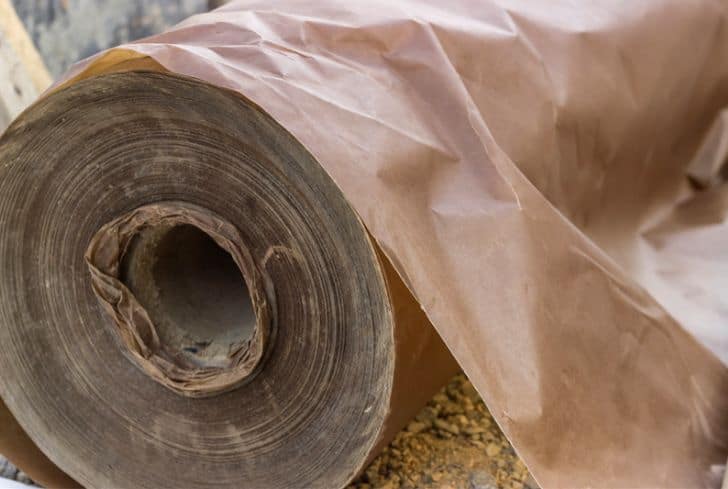There is no doubt that wax paper is a kitchen favorite. It has many use cases, such as cooking, baking, and food preservation. It is non-stick, which means you can bake your goodies without creating a hard-to-clean mess and reuse these papers a couple of times.
Your high consumption of wax papers may have you thinking, “is wax paper biodegradable?” The short answer is that it is, but biodegradability also depends on your wax paper’s material. Read on to learn the types of wax paper and how they affect the environment.
Does Wax Paper Biodegrade?
Wax paper is biodegradable if it is made from organic wax. Examples of organic wax include soybean and vegetable oil wax. These options are better for the environment because the actions of bacteria and fungi can break them down into useful substances.
On the other hand, non-biodegradable wax contains paraffin, a petroleum-based product. Paraffin wax is not organic, so microbes cannot break it down.
There are biodegradable and non-biodegradable types of wax paper. The former uses organic materials like soybean and vegetables to manufacture the wax used to line the paper, making it entirely organic; as you know, paper is made from trees.
This makes the waste product biodegradable and eco-friendly. The biodegradation process will not adversely affect biodiversity, and degradation will happen quickly.
Vegetable or soybean wax will break down within six weeks at most. That is the same period paper requires to decompose, so there will be uniform biodegradation which should also happen fast. The faster, the better.
In contrast, paraffin oil wax contains synthetic materials. Paraffin wax will decompose eventually, but the process will take longer and may have hazardous effects on the ecosystem.
Moreover, the biodegradation of paraffin wax should not be encouraged because this material contains harmful substances like parabens and formaldehyde. The soil and ecosystem are not the only entities at risk when considering the effects of parabens and formaldehyde. Paraben has been described as a “potentially hazardous chemical.”
Your best bet is to avoid dangers like this. Opt for vegetable or soybean wax paper. This option is better for you and the environment and is also the best for biodegradation.
What is Wax Paper Made of?
Wax paper is made of paper and wax. It is made by a process that introduces wax, whether paraffin, vegetable oil, or soybean wax, into the pores of a piece of paper and its surface. The paper is entirely covered with wax to give it a moisture-proof quality.
Thomas Edison is said to be the first man to create wax paper. There are two categories of wax paper. The difference between them is the material used to manufacture them. Wax paper is ordinary paper without wax.
It will be unable to carry out the function it was designed for. Hence, the addition of a thin layer of wax changes everything.
If the wax chosen by the manufacturer is not biodegradable or organic, your disposal options are restricted. On the other hand, manufacturers can use materials like vegetable or soybean oil to line the paper’s surface, making it an eco-friendly choice.
The manufacturing process and materials used to manufacture paraffin wax determine its application. For instance, it will not survive a high temperature when exposed. In other words, using wax paper, whether coated with vegetable wax or paraffin wax, to bake a batch of cookies is a fire risk.
On the other hand, parchment paper is a type of paper that you can use to bake items like cookies and biscuits. The exposed areas are not in danger of catching fire because of the coating.
Parchment paper is lined with a silicone coating to control the effects of temperature on paper. Silicone is more heat resistant than paraffin, vegetable, or soybean wax. This limits the application areas of wax paper.

Is Wax Paper Bad For the Environment?
Yes, wax paper is bad for the environment. It is coated with a layer of wax which may need to break down properly. Back when there were no eco-friendly wax paper options in the market, paraffin wax was doing a number on the environment. That type of wax paper is bad for the environment, but even the environmentally considerate options are only partially considerate because they use paper harvested from trees.
Wax paper is a lifesaver if you want to make sure your kitchen runs smoothly. Its non-stick and waterproof qualities are also quite attractive, and you are not the only one who thinks so if you’ve got a batch in your kitchen supplies.
1.4 million tons of wax paper is used yearly by American households. Considering that the average wax paper requires two to three months to degrade totally, this seemingly low consumption can quickly build up waste in our landfills.
And in some cases, especially before the advent of eco-friendly wax paper, wax paper took longer to break down. It wasn’t biodegrading, though, because paraffin wax was the most popular option for coating wax paper.
It was when the creation of alternatives like vegetable oil, beeswax, and soybean oil that the strain on the environment was significantly mitigated.
But even then, trees are felled for the manufacture of paper. The effects of cutting down trees to manufacture paper are not good for the environment, and neither is the manufacturing process which consumes a ton of fossil fuel.
Paper may be a great material during its post-use life, but the process that begat it has always raised environmental conservation and sustainability questions.
Is Wax Paper or Parchment Paper Better For The Environment?
The lesser of the two evils is wax paper. It is made from the organic matter because of the process of biodegradation or disposal, which is the final life or post-life of the material. Parchment paper is made from paper and lined with a silicone layer to create a moisture-proof or non-stick effect. However, silicone is non-biodegradable.
Wax paper and parchment paper are made from the same base material, following similar manufacturing processes. They are made from natural wood pulp, an organic substance derived from harvested trees.
Unfortunately, this is a point less in favor of wax and parchment paper.
Now, let’s compare the coating on each type of baking or cooking paper.
Wax coating is required to make these products non-stick and moisture-resistant. However, the wax used also says a lot about how the post-life of the product will affect the environment when the question of disposal arises.
Organic wax will break down fast, while silicone, which is used for parchment paper, will take a longer time before decomposition happens.
Can I Put Wax Paper in the Compost Pile?
It depends on the wax paper you intend to compost, but only organic wax paper is acceptable in a compost pile. Wax paper that is made from paraffin or petroleum products will not break down fast, but there are other problems. It will leech harmful chemicals, the end results of crude oil, into your compost pile and render it useless or detrimental to your soil, the plants, and the environment.
To compost wax paper, you must confirm the type of wax used to manufacture it. Vegetable oil wax, beeswax, and soybean wax are eco-friendly because they are made from natural and organic resources or plant matter.
Therefore, they will break down fast and naturally in a compost pile. But even better, the soil and plants will enjoy the useful resources that come from this waste. The paper will also break down fast.
When manufacturing wax paper, the coating is an integral part of its production. It incorporates the wax into every aspect of each sheet to create a moisture-proof attribute.
This is the reason paraffin wax-coated paper will not biodegrade fast. The pores of the sheets are filled with paraffin, thereby preventing biodegradation by microbes.
This also prevents the paper from breaking down.
Is Wax Paper Toxic?
No, wax paper is not toxic if made from eco-friendly materials. Eco-friendly materials include an organic coating. On the other hand, wax paper is harmful if it is made from petroleum products like paraffin oil.
Wax paper is not toxic, which is good because it comes in contact with our food. And considering that it is often used in high temperatures, it is even more important to double-check that you are using the most environmentally friendly alternative at your disposal.
If you opt for wax paper made from hundred percent organic matter, it is non-toxic. But those made from petroleum products are not good for you or the environment.
How Long Does Wax Paper Take To Decompose?
Wax paper will break down in two to six weeks if made from organic matter. This means the paper itself and its coating must be capable of biodegradation. On the other hand, wax paper made from paraffin requires longer biodegradation. It may not biodegrade in this lifetime because of the structural composition of paraffin oil.
If wax paper is made from natural resources that have an organic nature, it will decompose within two months. This is because the microorganisms in charge of biodegradation have incentives to break down this material.
In contrast, paraffin-based wax paper will not decompose within this timeframe.
Conclusion
If you enjoy baking, you will agree that wax paper is important in the kitchen. The high consumption makes it important to consider the effects of using this material on the environment, and you will be pleased to know that there are eco-friendly alternatives.






